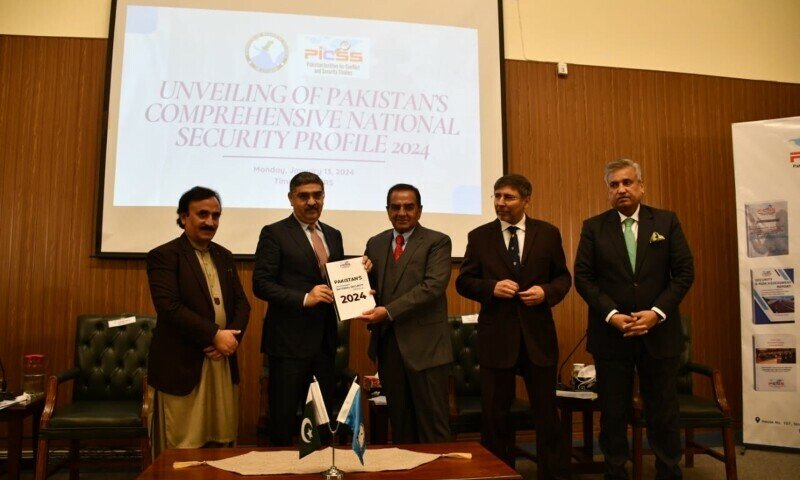Former caretaker prime minister and senator Anwarul Haq Kakar on Monday attributed the rise in terrorism to the abundance of NATO weapons left in Afghanistan after the US-led mission withdrew in 2021.
Pakistan, particularly Balochistan and Khyber Pakhtunkhwa, saw a sharp rise in terrorism-related incidents in 2024. Terrorist attacks have increased since the banned Tehreek-i-Taliban Pakistan (TTP) broke a fragile ceasefire agreement with government in 2022, vowing to attack security forces and other law enforcement agencies (LEAs).
Making these remarks at a security event held in Islamabad, the former caretaker prime minister attributed the rise in terrorism to terrorists seizing surplus weapons and devices from NATO. “We cannot afford to abandon this region like the Americans abandoned Afghanistan,” Kakar said.
He was the chief guest at the event attended by diplomats, think tank representatives and policy experts.
According to the press release issued by Pakistan Institute of Conflict and Security Studies (PICSS), Comprehensive National Security Profile of Pakistan 2024A detailed report analyzing Pakistan’s security landscape was presented at the Institute of Regional Studies in Islamabad.
“If it takes a century to fight terrorism, Pakistan will do it. “This is not just a battle against militants, it is a fight for regional stability,” Kakar said, according to the press release.
He continued: “In 2014, terrorism was not defeated: it simply moved to Afghanistan. When the environment became conducive, the militants counterattacked. We must discourage the phenomenon of rationalizing terrorism under any pretext.”
The press release added that Ambassador Jauhar Saleem, President of the Institute of Regional Studies, highlighted the collective nature of the challenge and commented: “Terrorism is a shared threat, and Pakistan should not be left alone to bear the burden. Winning the fight against terrorism requires winning hearts and minds.”
PICSS Director General Abdullah Khan focused on the strategies employed by militant groups.
“Despite different ideologies and objectives, terrorist groups operating in Khyber Pakhtunkhwa and Balochistan are employing similar tactics such as displaying territorial control through public displays,” the press release cited.
“This raises the question of whether these groups share a common controller. In addition, its media has become increasingly sophisticated, which has improved its ability to spread propaganda,” he noted.
Gul Dad, director of research at PICSS, shed light on the security challenges along Pakistan’s western borders with Iran and Afghanistan.
“The entire western border is now threatened by various terrorist groups,” he said, according to the statement. “Furthermore, these militants are attempting to re-establish their presence in the urban centers of Punjab and Sindh, posing a significant danger to national security.”
Islamabad Chamber of Commerce and Industry President Nasir Qureshi emphasized the importance of data-driven insights. “Reports like Pakistan’s Comprehensive National Security Profile 2024 are invaluable to the business community,” he said according to the statement. “They help us strategize and plan in an uncertain security environment.”
The event concluded with a discussion on Pakistan’s counter-terrorism strategies and the importance of international collaboration to combat terrorism.







